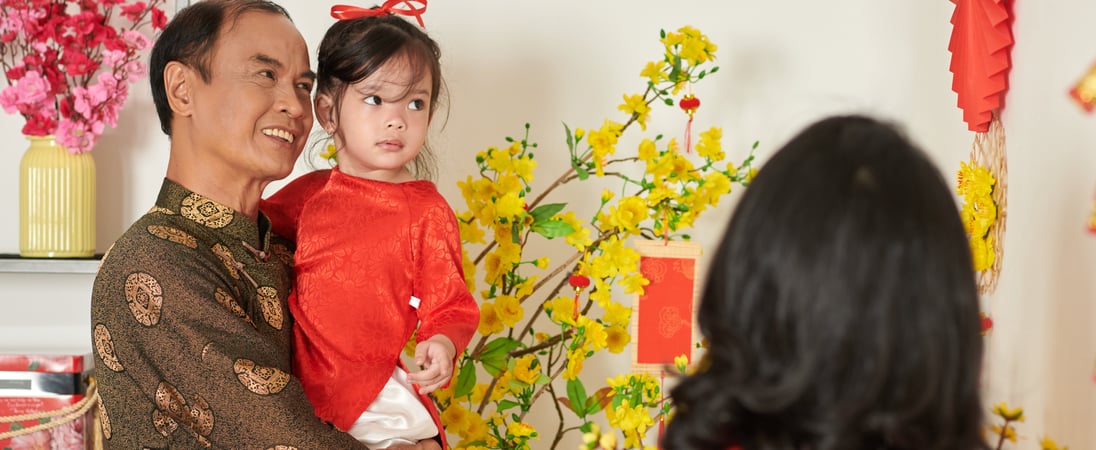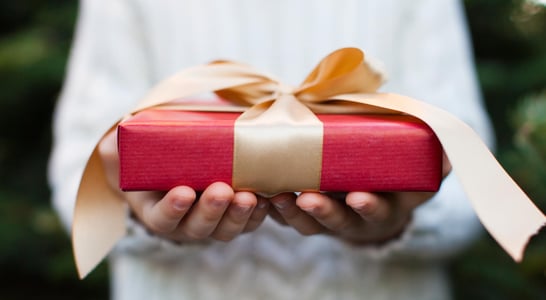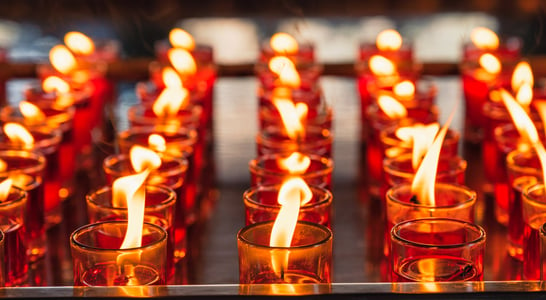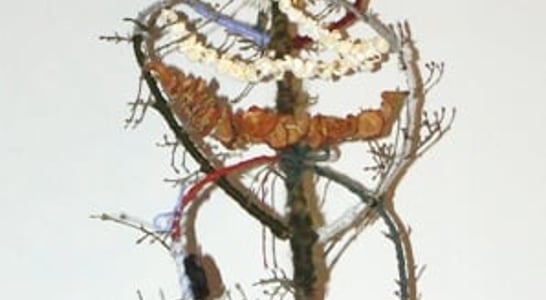
Lunar New Year
The Lunar New Year, also known as the Spring Festival, celebrates the hope for a fresh start. It marks the beginning of the lunar calendar and brings families together in a flurry of activities.
On this day, people believe it’s a time to sweep away the old and welcome new opportunities.
They decorate their homes, prepare special meals, and exchange red envelopes filled with money. Each part of the celebration symbolizes wishes for good luck, prosperity, and happiness in the coming year. The air buzzes with excitement as people set off fireworks, wear new clothes, and participate in festive parades.
Gathering with loved ones strengthens family bonds and honors ancestors. The traditions and rituals are meant to bring good fortune, happiness, and health throughout the year.
The celebration reflects the deep cultural values of unity, renewal, and respect.
How to Celebrate the Lunar New Year
Spice Up the House
Transform any home into a festive wonderland by decorating with red lanterns, paper cutouts, and banners. Add touches of gold for an extra dash of luck.
These vibrant decorations not only brighten up spaces but also invite positive energy for the year ahead. Don’t forget to hang a couplet or two on the door for extra good fortune.
Feast Like Royalty
Whip up a delicious feast featuring traditional dishes like dumplings, fish, and sticky rice cakes. Each dish carries a special meaning, like prosperity or togetherness.
Encourage everyone to help in the kitchen—cooking together is part of the fun! Round off the meal with sweet treats like tangerines and candy.
Light Up the Night
Fireworks and sparklers are a must! Light them up to chase away evil spirits and welcome in the new year with a bang. If fireworks aren’t an option, waving sparklers or watching a fireworks display from afar can be just as magical.
The more sparkle, the better!
Share the Wealth
Hand out red envelopes filled with money to younger family members or friends. It’s a fun way to share good fortune and spread smiles.
If feeling extra generous, include a wish for happiness or success. Don’t be surprised if those envelopes bring extra joy to the giver as well.
Dress to Impress
Slip into something new and red. This color represents luck and protection. Wearing new clothes also symbolizes a fresh start, making it a perfect excuse to do a little shopping.
Whether it’s a stylish outfit or a comfy pair of socks, make sure the first outfit of the year feels special.
History of the Lunar New Year
Lunar New Year, or Spring Festival, has roots stretching back thousands of years. It began during the Shang Dynasty, around 1600 BC.
Early celebrations focused on honoring gods and ancestors. People believed these rituals would bring a good harvest and ward off evil spirits.
A popular legend says a monster named Nian would terrorize villages every year. The frightened villagers discovered that loud noises, fire, and the color red scared the creature away. This story became part of the tradition, leading to the use of fireworks and red decorations.
Emperors later formalized the holiday, linking it to the lunar calendar and making it an important event in Chinese society. Over time, these practices evolved, blending cultural and spiritual elements. Today, it’s a celebration of family, prosperity, and new beginnings.
Lunar New Year FAQs
How did firecrackers become a part of Lunar New Year celebrations?
Firecrackers are a tradition that dates back to an ancient Chinese myth about the monster Nian, who terrorized villages every New Year.
Villagers learned that loud noises and red decorations scared Nian away, so they began setting off firecrackers to welcome the new year and ward off evil spirits.
Today, this tradition represents joy and good fortune for the coming year, although firecracker use is restricted in some areas for safety.
The loud sounds and flashes still capture Nian’s essence, symbolizing protection against bad luck.
Why are red envelopes popular, and do other colors mean different things?
Red envelopes, or hóngbāo, are filled with money and given during Lunar New Year to bring good luck.
Red symbolizes joy and energy in Chinese culture, so these envelopes bring blessings.
But colors have specific meanings: black or white envelopes would be considered bad luck since these colors are associated with mourning.
In Vietnam, similar envelopes are used, though sometimes in yellow, representing prosperity. The amount given must avoid the number four, as it sounds like “death” in Mandarin.
What are some unusual foods enjoyed during Lunar New Year celebrations?
In China, fish is served to represent prosperity, but it must be left unfinished to symbolize surplus.
In Korea, people eat tteokguk (rice cake soup), believing it adds a year to their age. Singaporeans toss yu sheng, a colorful raw fish salad, for good fortune.
Each ingredient has specific symbolism, such as carrots for blessings. Meanwhile, in the Philippines, circular fruits symbolize wealth, while people in Vietnam eat sticky rice cakes bánh chưng, symbolizing earth and unity.
Why does the date of Lunar New Year change each year?
Lunar New Year follows the lunar calendar, which is based on moon cycles rather than the solar year.
It typically falls on the second new moon after the winter solstice, around late January to mid-February. This system means the holiday moves yearly within this range, unlike the Gregorian calendar.
The lunar calendar aligns with natural cycles, influencing farming and traditional events in many Asian cultures. The exact date is calculated with the help of astronomy and lunar phases.
How do Lunar New Year celebrations differ in North and South Korea?
In North Korea, Lunar New Year (called Seollal) is celebrated less openly, with low-key gatherings and official events emphasizing national pride.
In contrast, South Koreans celebrate with charye (ancestral rites), family gatherings, and games like yut nori. Families in both countries eat tteokguk, yet South Korea’s celebrations are more festive and widespread.
The two Koreas share some customs, but political contexts shape each celebration.
What do Zodiac animals symbolize, and why are they chosen for each year?
Each year in the Chinese Zodiac has an animal from a 12-year cycle, like the Rat, Ox, and Tiger.
Legends say these animals raced for a place in the cycle, with each finishing based on traits like strength, cunning, and perseverance.
People born in each year are thought to share qualities with the year’s animal, like Rabbits being gentle or Tigers courageous.
These animals also represent elements, creating complex associations that influence personality traits.
Why do some families clean their homes before Lunar New Year and avoid it afterward?
Cleaning before Lunar New Year is thought to remove last year’s bad luck, preparing for a fresh start.
However, on New Year’s Day itself, cleaning is taboo. Sweeping or dusting might “sweep away” good fortune. In Hong Kong, some families store brooms and mops to prevent accidental cleaning.
This custom varies, but most Asian countries that observe Lunar New Year follow similar “no cleaning” rules to avoid disrupting incoming luck.
Why do some countries refer to the Lunar New Year as “Tet”?
Tet is the Vietnamese Lunar New Year, known as Tết Nguyên Đán, meaning “Festival of the First Morning of the First Day.”
This holiday overlaps with Chinese New Year but has unique customs, like making and eating bánh chưng and honoring ancestors with special altar decorations.
Vietnamese families also decorate their homes with peach or apricot blossoms, symbolizing luck and renewal. The name “Tet” is distinctive to Vietnam, reflecting local language and cultural practices.
Are there any unique superstitions around Lunar New Year?
Many believe cutting hair during Lunar New Year cuts away fortune, so barbers are busy before the holiday. In Korea, some avoid using knives on New Year’s Day, fearing it “cuts away” good luck. Wearing black is also avoided in some regions, as it signifies mourning. Meanwhile, Filipinos believe in jumping at midnight to grow taller, and in Hong Kong, placing oranges around the house attracts wealth. Each region has its own special twists.
Also on ...
View all holidaysNational Random Acts of Kindness Day
Brighten someone's day with unexpected kindness! Hold the door, pay for a coffee, or simply smile. Small gestures make a big difference!
National Public Science Day
Embracing the curiosity and wonder that fuel exploration, discovery, and a deeper understanding of the world around us.
We think you may also like...
Thanksgiving
Turkey, stuffing, and pumpkin pie! A time to be around the ones you love, give thanks, and celebrate the blessings in our lives.








